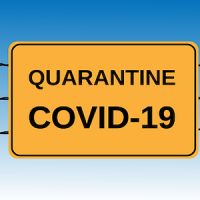Life has come to a standstill as critical care doctors continue to battle COVID-19. The pandemic has led to shortages of essential goods and services - from hand sanitizers to masks to beds to ventilators. Today, the healthcare system is facing the prospect of rationing medical goods and services.
Mechanical ventilation, in particular, has come out to be the most problematic. Several countries are already facing a shortage of ventilators. Italy's experience has already shown that approximately 10 to 25% of hospitalised COVID-19 patients will require ventilation for several weeks. How will this problem be handled as COVID-19 cases across Europe, USA and Canada continue to increase? Based on the estimates from Italy, the number of patients that could possibly need ventilation could range from 1.4 to 31 patients per ventilation. Will it become necessary to ration ventilators? This certainly depends on the pace of the pandemic, but most experts warn that this could be a real possibility.
It is understandable that in such a healthcare crisis, shortages of goods and services does and can occur. These shortages can contribute to poor outcomes and even death. But when it comes to mechanical ventilation, this risk multiplies. A patient with deteriorated breathing needs a ventilator. There is only a limited window during which they can be saved. If the ventilator is withdrawn, the patient will die. Hence, all other shortages aside, the decision to ration and/or terminate mechanical ventilation is truly a choice between life or death.
Rationing during a pandemic is usually based on a few general principles. The goal is to save the most lives hence the decision to save which life is usually defined by a patient's likelihood of surviving an acute medical episode. But how does one allocate or ration ventilators? Should patients who have been placed on mechanical ventilation be withdrawn? There was a time when withdrawing a ventilator was akin to killing. Today, withdrawal of ventilatory support often happens in the ICU at the request of a patient or surrogate and is considered a legal and ethical obligation. But withdrawing it without the consent of a patient or surrogate is only allowed in a few regions and only when treatment is determined to be futile. But when its a pandemic like COVID-19, it's not the futility of treatment that is the driving force. It is a shortage of resources.
There have been many stories where physicians in Italy have had to tearfully make these hard choices. The emotional trauma and distress experienced by clinicians should not be underestimated or dismissed. A possibility could be to leave these decisions to a triage committee made up of volunteers who are respected clinicians and leaders within the medical community. This would provide a buffer for other clinicians and save them from making decisions that could affect their ability to provide care. Clinicians should be given the right to appeal the committee's decision if required, but everyone needs to work together to ensure unbiased and fair decisions for all.
No one can exactly predict what the next few weeks will bring. Physicians may have to face situations that they've never been in before and may have to make decisions that they haven't taken before. This is not the time to blame healthcare workers for decisions they have no choice but to make. Triage committees are not death panels, and physicians are not killing patients by choice. It is the burden of COVID-19 that has put healthcare systems in turmoil. This is the time for everyone to work together and for patient care to be the number one priority.
Source: NEJM
Image Credit: Pixabay
References:
Troug, RD et al. (2020) The Toughest Triage — Allocating Ventilators in a Pandemic. NEJM.
Latest Articles
mechanical ventilation, mechanical ventilators, pandemic, COVID-19, #Coronavirusoutbreak
Life has come to a standstill as critical care doctors continue to battle COVID-19. The pandemic has led to shortages of essential goods and services - from hand sanitizers to masks to beds to ventilators. Today, the healthcare system is facing the prospe



























